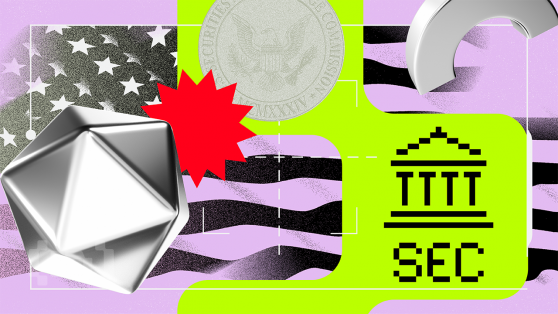BeInCrypto - Stuart Alderoty, the chief legal officer at Ripple, has questioned the soundness of the Securities and Exchange Commission’s (SEC) lawsuit against the crypto firm.
In a tweet on Saturday. Alderoty pointed to a 1946 case in which the U.S. Supreme Court ruled against the SEC.
Ripple vs The SEC
In one of the most protracted (and expensive) legal battles the crypto space has ever seen, Ripple has contested the SEC’s claim that the XRP cryptocurrency is a security.
As the SEC argued in a lawsuit, XRP should be considered a security. If it is deemed as such, Ripple would be guilty of breaching securities law by not registering the token with the SEC.
The question of whether cryptocurrencies are securities or not has been brewing for years. Any ultimate judgment for or against the SEC’s claims will have lasting implications for the crypto sector. And the commission’s dogged insistence on the securities status of digital assets has had some interesting consequences.
Otherwise, divergent crypto firms have forged alliances against a common enemy in the SEC. For example, Coinbase (NASDAQ:COIN) and Ripple Lawyers have met to discuss how best to navigate the ongoing lawsuit and disputed legal status of XRP.
Going forward, the Ripple case may finally provide the crypto community with a court decision that settles the matter once and for all.
The Howey Case
In his tweet, Alderoty references SEC vs W.J. Howey Co, a 1946 case in which the court ruled in favor of the Howey Company.
The Howey Company sold tracts of citrus groves to buyers in Florida. They would then lease the land back to Howey. Company staff would then tend to the groves and sell the fruit on behalf of the owners. Both parties shared in the revenue.
Back then, like it is trying to do with Ripple now, the SEC claimed that the Howey company’s business amounted to selling unregistered securities because the transactions qualified as investment contracts.
However, the Supreme Court ruled that Howey’s agreements with buyers did not count as investment contracts. That ruling has since become a foundational case in establishing whether or not a given asset or contract is subject to securities law.
In what has become known as the Howey Test, an investment contract exists if there is an “investment of money in a common enterprise with a reasonable expectation of profits to be derived from the efforts of others.”
From Citrus Groves to Crypto Contracts
As Alderoty pointed out in his tweet, the Howey Test rests upon exactly how a “common enterprise” is defined.
Back in 1945, he notes that the SEC unsuccessfully argued that an investment in a common enterprise was unnecessary provided there was a “community of interest.”
In Ripple’s case, the community of interest would be anyone who buys XRP. And of course, many people to purchase the token anticipating that the price of XRP will rise. But because Ripple offers no assurances that investors will turn a profit, Alderoty implies that there is no common enterprise.
“The SEC was wrong then and it is still wrong now. Common Interest ≠ Common Enterprise,” he stressed.
For BeInCrypto’s latest crypto market analysis, click here
